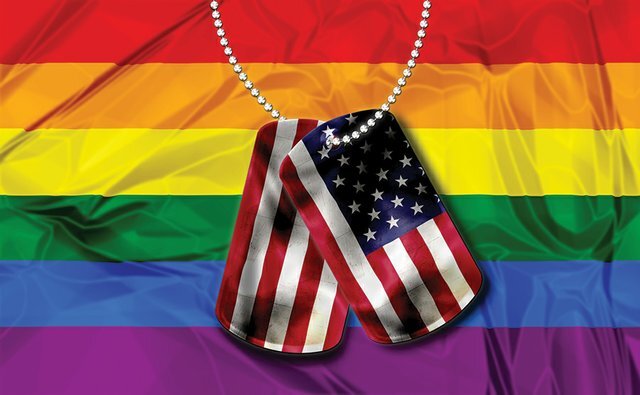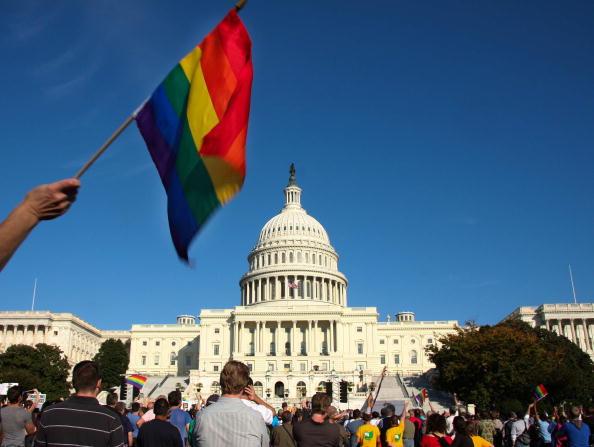Impact Fund and allies say "YES" to Equality Act
David Nahmias, Law Fellow - The Impact Fund
Federal Antidiscrimination Law still does not protect LGBTQ People.
On March 12, Representatives David Cicilline (D-RI) and Brian Fitzpatrick (R-PA), along with at least 230 cosponsors, introduced H.R. 5, the Equality Act, a comprehensive and bipartisan civil rights bill that would codify federal antidiscrimination protections for LGBTQ people. Senators Jeff Merkley (D-OR), Tammy Baldwin (D-WI), and Cory Booker (D-NJ) introduced a companion bill in the Senate, already with bi-partisan support.
Since 1994, federal lawmakers have repeatedly and unsuccessfully tried to pass legislation prohibiting discrimination because of sexual orientation and—later—gender identity. The 116th Congress, with its historic numbers of women, people of color, and LGBTQ members, offers the best chance yet for the Equality Act to pass the House of Representatives. But what exactly would it do?
The Equality Act updates the list of protected groups in a number of civil rights laws by clarifying that “sex” “includ[es] sexual orientation and gender identity.” It defines gender identity as “the gender-related identity, appearance, mannerisms, or other gender related characteristics of a person,” and it defines sexual orientation as “homosexuality, heterosexuality, or bisexuality.” “Sex” Is also defined as including “a sex stereotype” and including “intersex traits.” The bill would write into law what numerous circuit and district courts nationwide have already determined—that sexual orientation or gender identity discrimination is sex discrimination.
Past attempts have met with resistance. Is the time right for the Equality Act?
The bill adds these expanded LGBTQ protections to the major provisions of the 1964 Civil Rights Act, including the prohibitions against discrimination in public accommodations (Title II), by federally funded programs (Title VI), and in the workplace (Title VII). It also adds LGBTQ protections in the law’s school desegregation provisions (Title III), and it empowers the Department of Justice to enforce the public accommodations law against anti-LGBTQ bias. The Equality Act also codifies sexual orientation and gender identity as protected classes in the Fair Housing Act, Equal Credit Opportunity Act, and 28 U.S.C. §1862, which prohibits discrimination in federal jury selection.
The Equality Act would write into these statutes the understanding of discrimination that has long been relied on by courts. The Act explicitly forbids associational and perceived discrimination; that is, discrimination against someone associated with a member of a protected group (including sexual orientation and gender, but also preexisting protected traits like race or sex) or perceived by others as belonging to a protected group, even if wrongly so.
In the workplace, the Equality Act clarifies that for those rare instances where an employee must be of a particular sex to perform a job, a person is qualified according to her gender identity. It also ensures that LGBTQ federal workers, including Congressional staffers, are protected, and that the Equality Employment Opportunity Commission will investigate and enforce complaints of sexual orientation and/or gender identity discrimination.
Beyond protecting LGBTQ people, the Equality Act strengthens antidiscrimination protections for women and people of color. Currently, no federal law forbids places of public accommodations from discrimination because of sex, and the types of covered establishments are limited. The Equality Act adds long-needed protections against sex discrimination in public accommodations and federally funded programs (currently in the Civil Rights Act, only Title VII protects sex, ironically because Southern Democrats added it, hoping to kill the legislation altogether. Moreover, the amendments expand the types of cover public accommodations to include entertainment and retail, professional services (including legal services), and transportation-related establishments.
Finally, the Act squarely addresses two of the major questions associated with anti-LGBT bias today—discriminatory religious refusals and facilities access for transgender people. The bill declares that the Religious Freedom Restoration Act cannot serve as a defense to enforcement actions under the Civil Rights Act. The bill also forbids denying access to shared facilities that do not correspond to a person’s gender identity.
Critically, the Act does not limit or weaken any claims or rights already provided under federal law. This means that, for example, the law does not supersede judicially construed protections against sexual harassment and sex stereotyping discriminations, or conflict with laws forbidding pregnancy discrimination.
The Equality Act would protect millions of LGBT people, especially those who live in states without LGBT antidiscrimination laws, and its effects would be wide-reaching, including for criminal justice reform. Civil rights advocates have rightly lauded the Equality Act, and almost 300 state and national organizations (including the Impact Fund), signed a letter of support for the bill.
The House is expected to pass the Equality Act this summer and then all eyes will be on the Senate to defend or disregard LGBTQ Americans.




